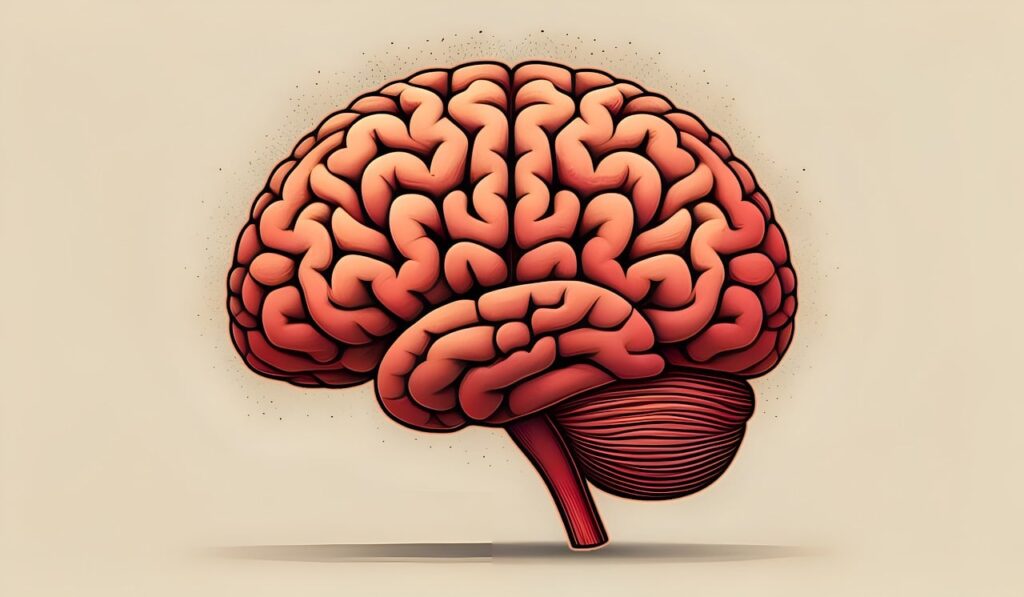
Introduction
Have you ever felt inexplicably tired, experienced persistent bone pain, or noticed some unusual changes in your mood? If so, you might want to consider the possibility of vitamin D deficiency. Known as the “sunshine vitamin,” vitamin D is crucial for our overall health, playing a significant role in various bodily functions. Unfortunately, many of us don’t get enough of it, leading to a host of potential health issues.
The Importance of Vitamin D
Vitamin D is essential for:
- Bone health: It helps maintain the calcium levels necessary for strong bones.
- Immune function: It supports your body’s defenses against infections and illnesses.
- Mental wellness: Adequate levels can influence mood and cognitive function.
With our busy lives often keeping us indoors, especially during colder months, vitamin D deficiency has become increasingly common. You might remember a time when you felt under the weather, even with no visible symptoms. That could very well be linked to a lack of this essential nutrient.
A Personal Touch
Let me share a personal experience. A couple of years ago, I went through a phase where I was constantly fatigued despite getting enough sleep. My bones ached after even light activities, and I felt unusually blue on certain days. After discussing my symptoms with a friend who is a health enthusiast, I decided to get my vitamin D levels checked. To my surprise, they were significantly low! A few weeks of sun exposure and some dietary adjustments turned my condition around dramatically, restoring my vitality.
This experience taught me the profound impact vitamin D has on our well-being. Beyond just bone health, it plays a multifaceted role in numerous aspects of our daily lives.
As we delve deeper into this topic, we will explore the signs and symptoms of vitamin D deficiency, including some uncommon indicators that might catch you off guard. Understanding these can empower you to take the necessary steps toward a healthier you. So, let’s uncover the symptoms of vitamin D deficiency together!
Signs of Vitamin D Deficiency
Now that we understand the importance of vitamin D, let’s dive into the signs that may indicate you’re not getting enough of this essential nutrient. It’s important to recognize these signs early on so that you can take action and improve your health.
Fatigue and Tiredness
Are you dragging yourself out of bed every morning, feeling more tired than refreshed? Fatigue is one of the most common symptoms of vitamin D deficiency. It often sneaks up on you, making mundane tasks feel overwhelming. Many people chalk it up to just “being busy” or not sleeping well, but if you’re consistently drained, it might be time to investigate further.
- What to look for:
- Persistent tiredness after a full night’s sleep
- A general sense of malaise even with enough rest
- Difficulty concentrating due to low energy levels
I remember when I first experienced this fatigue. My friend could barely get through her workday without feeling a heavy weight on her shoulders. After incorporating regular sun exposure and vitamin D-rich foods like salmon and fortified dairy into her diet, she noticed a remarkable change.

Bone and Back Pain
Another telling sign of vitamin D deficiency is unexplained bone and back pain. Vitamin D is essential for calcium absorption, which means that without enough of it, your bones may not be as strong and healthy as they should be. You might find yourself experiencing:
- Aches in specific areas: including the lower back and joints
- Increased discomfort: during physical activities or even while sitting for extended periods
- Unexplained muscle pain: that doesn’t seem to have a clear cause
I’ve seen this firsthand with my uncle, who always complained of persistent back pain. It turned out that his vitamin D levels were alarmingly low. After he started taking supplements and getting more sunlight, his aches diminished significantly, and he felt like a new person.
If you’re experiencing these symptoms, it might be time to consult with a healthcare provider to assess your vitamin D levels. Recognizing these early signs can help you take proactive steps towards better health and overall well-being.
Uncommon Symptoms of Vitamin D Deficiency
While fatigue and bone pain are relatively well-known indicators of vitamin D deficiency, other symptoms can be somewhat surprising and may catch you off guard. Recognizing these lesser-known signs is essential for addressing potential deficiencies early on.
Hair Loss
Have you ever experienced an unusual amount of hair shedding? It’s frustrating to say the least, especially when you can’t pinpoint the cause. Surprisingly, hair loss can be tied to a lack of vitamin D. Research indicates that vitamin D plays a critical role in the hair growth cycle, and insufficient levels could lead to hair thinning or loss.
- What to notice:
- Thinning hair, particularly on the crown of your head
- Patches of hair loss where the scalp is visible
- Increased hair fall during washing or brushing
I had a friend who noticed her hair was getting noticeably thinner. Initially, she thought it was due to stress or perhaps an overuse of styling products. However, after consulting with a hair specialist and checking her vitamin D levels, she discovered they were quite low. Incorporating more vitamin D-rich foods and taking supplements helped her regain some hair density, boosting both her confidence and her overall well-being.

Depression and Mood Swings
Another unexpected symptom of vitamin D deficiency is its effect on mental health. When levels of this vital nutrient drop, you may discover that your mood swings more than usual or even experience symptoms of depression. This connection is particularly concerning, especially for those who may already be dealing with mental health challenges.
- Signs to watch for:
- Feeling unusually down or anxious
- Increased irritability or mood fluctuations
- Comparatively lower motivation levels
A close family member fought with mood swings for quite some time, attributing them to life stressors. It wasn’t until they were encouraged to get their vitamin D levels checked that they learned about the connection. Once they started addressing their deficiency with supplements and outdoor activities, their mood stabilized significantly, leaving them feeling much more balanced and positive.
Understanding these uncommon symptoms is crucial for maintaining your overall health. If you suspect that you might be deficient in vitamin D, reaching out to a healthcare professional can be an essential step toward regaining your health and happiness.
Impact on Skin and Nails
In addition to affecting your energy levels and mood, vitamin D deficiency can also manifest through changes in your skin and nails. While you might not immediately associate these symptoms with vitamin D, recognizing them could help you take action to improve your health.
Skin Changes
Have you noticed your skin feeling drier or perhaps more prone to irritations? Vitamin D plays a crucial role in skin health, assisting in skin cell growth and repair. When levels are inadequate, you might experience a range of skin-related issues.
- Common skin changes include:
- Increased dryness or flakiness
- A tendency to develop rashes or irritation
- Changes in skin tone or texture
I met a friend at a reunion once who commented on how dry and irritated her skin had become over the winter months. Despite using all her usual moisturizers, nothing seemed to help. When she finally had her vitamin D checked, she discovered her levels were quite low. After implementing dietary changes and spending more time outdoors, she noticed not only an improvement in her skin but also an overall boost in her energy.
Brittle Nails
Another signal that can indicate a vitamin D deficiency is brittle nails. If you find yourself frequently dealing with nails that break or chip easily, this could be a sign that your body is lacking in this important vitamin.
- Things to watch for:
- Nails that split or crack easily
- Nails that take longer to grow
- A dull appearance without the usual shine
I’ve seen my sister struggle with brittle nails for years; she always had to be careful whenever she did daily activities. It wasn’t until she learned about the abundant benefits of vitamin D that she decided to get her levels checked. After just a few months of dietary changes and incorporating supplements, her nails were stronger and healthier than ever.
Whether it’s skin changes or brittle nails, these symptoms can indicate that it’s time to pay attention to your vitamin D levels. Being proactive about your nutrition and sun exposure can make all the difference in how you feel both inside and out. If you notice these changes, consider speaking with a healthcare professional to explore possible solutions.

Connection to Immune System Health
As we continue to explore the myriad effects of vitamin D deficiency, we can’t overlook its critical role in supporting a robust immune system. Without adequate levels of this essential vitamin, you may find yourself more susceptible to infections and other health issues.
Increased Risk of Infections
Have you ever noticed that you catch colds more frequently than your friends? Regularly falling ill could be tied to low vitamin D levels. This potent nutrient helps to bolster your immune cells and promotes the body’s ability to fend off pathogens.
- Consider these key factors:
- Increased susceptibility to respiratory infections like colds and flu
- Higher incidences of autoimmune disorders
- Longer recovery times from illnesses
A friend of mine was notorious for catching every bug that went around the office. After countless doctor visits and an exhausting winter filled with sickness, she finally decided to investigate her vitamin D levels. It turned out she was significantly deficient! Since making adjustments to her diet and adding a daily supplement, she’s noticed a stark decrease in illness, allowing her to better enjoy her winter months.
Slow Healing of Wounds
Another concerning symptom linked to vitamin D deficiency is slow wound healing. When you have a cut or scrape, the body relies on vitamin D to help regulate the process of healing and tissue repair.
- Look out for signs like:
- Cuts or scrapes that take unusually long to heal
- Recurrent infections at the wound site
- General fatigue during recovery periods
I experienced this firsthand when I sustained a minor injury while gardening. Despite following all the usual cleaning and care routines, my wound seemed to linger longer than expected. After speaking with my doctor about my health, I discovered that my vitamin D levels were lower than they should be. Once I began supplementing, I noticed a significant improvement in my healing time for future injuries.
Understanding the connection between vitamin D and immune health is crucial, especially in today’s world where we are increasingly aware of the importance of a resilient immune system. If you find yourself susceptible to infections or struggling to recover from minor injuries, it may be time to check your vitamin D levels and take the necessary steps to boost them. Your health will thank you!
Influence on Muscle Strength and Function
As we’ve explored various health aspects impacted by vitamin D deficiency, it’s essential to highlight its significant influence on muscle strength and function. Many people often overlook the role of vitamin D in muscle health, assuming that if they’re exercising regularly, they’re in good shape. However, if your vitamin D levels are low, you may struggle in ways you might not expect.
Muscle Weakness
Do you sometimes feel unusually weak or struggle with muscle fatigue during routine activities? Vitamin D deficiency can significantly contribute to muscle weakness, impacting your ability to perform both daily tasks and physical activities.
- Signs of muscle weakness include:
- Difficulty lifting weights or even performing body-weight exercises
- Trouble standing from a seated position without assistance
- A general feeling of heaviness in limbs, making movement seem harder
I have a colleague who was an avid gym-goer but couldn’t understand why his strength seemed to be declining. After experiencing increasingly frequent bouts of muscle fatigue, he decided to get his vitamin D levels checked. He discovered they were shockingly low, which explained his struggles. Once he started taking supplements and focusing on sun exposure, his strength began to return, and he felt more like himself again.
Impaired Physical Performance
The effects of low vitamin D don’t stop at muscle weakness; they can severely impair your overall physical performance. This can be particularly concerning for athletes or anyone who regularly engages in physical activity.
- Effects on performance may include:
- Reduced endurance during cardio exercises
- Slower recovery times post-workout
- Increased risk of injuries due to poor muscle function
For instance, I have a friend who participates in marathons. She noticed her stamina decreasing, and her times began to drop. After consulting with a coach, she realized the importance of not only training hard but also ensuring her nutritional health was optimum. A check-up revealed that her vitamin D levels were below normal. By incorporating more outdoor runs and taking appropriate supplements, she saw a remarkable improvement in her performance and overall energy levels.
Overall, recognizing the vital link between vitamin D and muscle health can help you improve both your physical performance and quality of life. If you suspect you might have low vitamin D, taking the time to address it may lead to noticeable changes in your strength and stamina. Stay proactive about your health and consider consulting a healthcare professional for a proper assessment!

Importance for Brain Health
As we wrap up our exploration of vitamin D’s impact on various aspects of health, we arrive at one of the most critical yet often overlooked areas: brain health. A growing body of research suggests that vitamin D plays a crucial role in maintaining cognitive function and reducing the risk of neurological disorders.
Cognitive Impairment
Have you ever found yourself forgetting where you placed your keys or struggling to focus on a task? These moments can be frustrating, but they might relate more to your vitamin D levels than you might think. Insufficient vitamin D has been associated with cognitive impairment and poorer mental clarity.
- Indicators of cognitive impairment may include:
- Difficulty with memory recall
- Issues with concentration and attention span
- Increased feelings of confusion or disorientation
I recall when my grandmother started to experience some memory lapses. Initially, we attributed it to aging, but when she underwent health assessments, it was discovered that her vitamin D levels were quite low. After she started supplementation and spent more time basking in the sun, not only did her memory improve slightly, but her overall mood brightened, too! It was a liberating experience for her and the entire family.
Increased Risk of Neurological Disorders
The potential implications of vitamin D deficiency extend beyond temporary memory issues. Research has shown that low levels of this essential vitamin may increase the risk of developing serious neurological disorders, including dementia and multiple sclerosis (MS).
- Risk factors associated with inadequate vitamin D:
- Higher likelihood of developing Alzheimer’s disease
- Correlation with increased episodes of depression or anxiety
- Potential association with autoimmune disorders affecting the nervous system
I once spoke with a neurologist who emphasized how critical vitamin D levels are for his patients with MS. He noted that while it is not a cure, adequate vitamin D contributes positively to their overall management and quality of life.
Understanding the importance of vitamin D for brain health is vital, especially as we age. If you’re experiencing cognitive challenges or simply want to optimize your brain health, consider assessing your vitamin D levels. By taking proactive steps to ensure adequate levels—whether through sun exposure, diet, or supplements—you could improve not only your mental clarity but also safeguard your brain health for the future. Make your brain a priority and start taking action today!
